12 start with D start with D

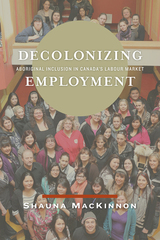
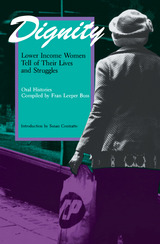
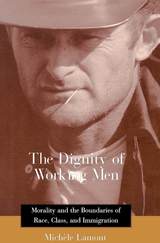
Michèle Lamont takes us into the world inhabited by working-class men--the world as they understand it. Interviewing black and white working-class men who, because they are not college graduates, have limited access to high-paying jobs and other social benefits, she constructs a revealing portrait of how they see themselves and the rest of society.
Morality is at the center of these workers' worlds. They find their identity and self-worth in their ability to discipline themselves and conduct responsible but caring lives. These moral standards function as an alternative to economic definitions of success, offering them a way to maintain dignity in an out-of-reach American dreamland. But these standards also enable them to draw class boundaries toward the poor and, to a lesser extent, the upper half. Workers also draw rigid racial boundaries, with white workers placing emphasis on the "disciplined self" and blacks on the "caring self." Whites thereby often construe blacks as morally inferior because they are lazy, while blacks depict whites as domineering, uncaring, and overly disciplined.
This book also opens up a wider perspective by examining American workers in comparison with French workers, who take the poor as "part of us" and are far less critical of blacks than they are of upper-middle-class people and immigrants. By singling out different "moral offenders" in the two societies, workers reveal contrasting definitions of "cultural membership" that help us understand and challenge the forms of inequality found in both societies.
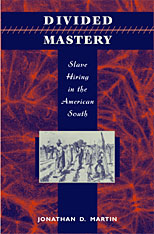
Divided Mastery explores a curiously neglected aspect of the history of American slavery: the rental of slaves. Though few slaves escaped being rented out at some point in their lives, this is the first book to describe the practice, and its effects on both slaves and the peculiar institution.
Martin reveals how the unique triangularity of slave hiring created slaves with two masters, thus transforming the customary polarity of master-slave relationships. Drawing upon slaveholders' letters, slave narratives, interviews with former slaves, legislative petitions, and court records, Divided Mastery ultimately reveals that slave hiring's significance was paradoxical.
The practice bolstered the system of slavery by facilitating its spread into the western territories, by democratizing access to slave labor, and by promoting both production and speculation with slave capital. But at the same time, slaves used hiring to their advantage, finding in it crucial opportunities to shape their work and family lives, to bring owners and hirers into conflict with each other, and to destabilize the system of bondage. Martin illuminates the importance of the capitalist market as a tool for analyzing slavery and its extended relationships. Through its fresh and complex perspective, Divided Mastery demonstrates that slave hiring is critical to understanding the fundamental nature of American slavery, and its social, political, and economic place in the Old South.
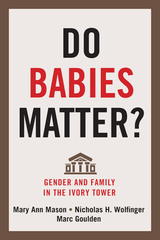
Do Babies Matter? is the first comprehensive examination of the relationship between family formation and the academic careers of men and women. The book begins with graduate students and postdoctoral fellows, moves on to early and mid-career years, and ends with retirement. Individual chapters examine graduate school, how recent PhD recipients get into the academic game, the tenure process, and life after tenure. The authors explore the family sacrifices women often have to make to get ahead in academia and consider how gender and family interact to affect promotion to full professor, salaries, and retirement. Concrete strategies are suggested for transforming the university into a family-friendly environment at every career stage.
The book draws on over a decade of research using unprecedented data resources, including the Survey of Doctorate Recipients, a nationally representative panel survey of PhDs in America, and multiple surveys of faculty and graduate students at the ten-campus University of California system..
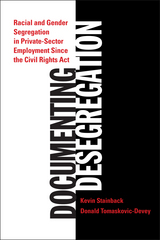
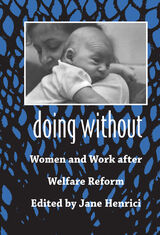
In Doing Without, Jane Henrici brings together nine contributions to tell the story of welfare reform from inside the lives of the women who live with it. Cases from Chicago and Boston are combined with a focus on San Antonio from one of the largest multi-city investigations on welfare reform ever undertaken. The contributors argue that the employment opportunities available to poorer women, particularly single mothers and ethnic minorities, are insufficient to lift their families out of poverty. Typically marked by variable hours, inadequate wages, and short-term assignments, both employment and training programs fail to provide stability or the kinds of benefits—such as health insurance, sick days, and childcare options—that are necessary to sustain both work and family life. The chapters also examine the challenges that the women who seek assistance, and those who work in public and private agencies to provide it, together must face as they navigate ever-changing requirements and regulations, decipher alterations in Medicaid, and apply for training and education. Contributors urge that the nation should repair the social safety net for women in transition and offer genuine access to jobs with wages that actually meet the cost of living.

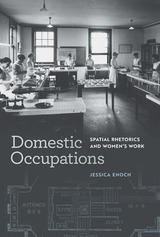
Enoch explores how three different groups of women workers—teachers, domestic scientists, and World War II factory employees—contended with the physical and ideological space of the home, examining how this everyday yet powerful space thwarted or enabled their financial and familial security as well as their intellectual engagements and work-related opportunities.
Domestic Occupations demonstrates a multimodal and multigenre research method for conducting spatio-rhetorical analysis that serves as a model for new kinds of thinking and new kinds of scholarship. This study adds historical depth and exigency to an important contemporary conversation in the public sphere about how women’s ties to the home inflect their access to work and professional advancement.

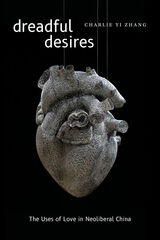
READERS
Browse our collection.
PUBLISHERS
See BiblioVault's publisher services.
STUDENT SERVICES
Files for college accessibility offices.
UChicago Accessibility Resources
home | accessibility | search | about | contact us
BiblioVault ® 2001 - 2024
The University of Chicago Press









